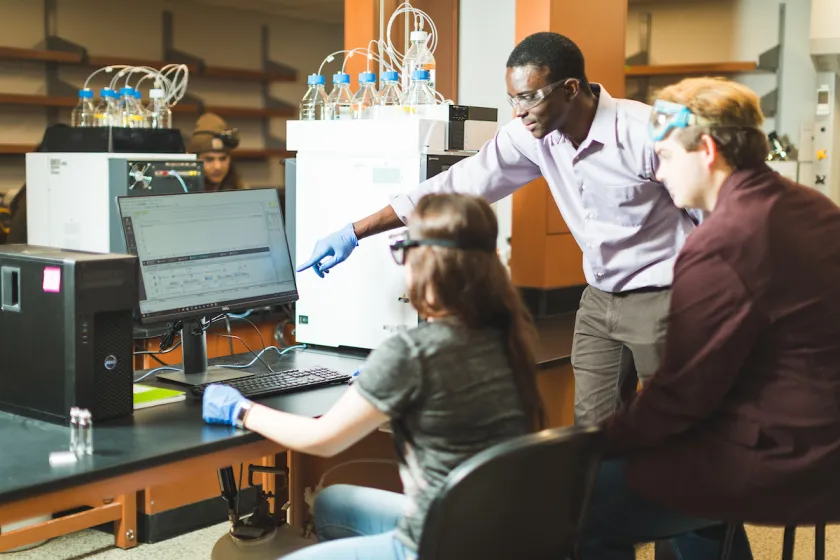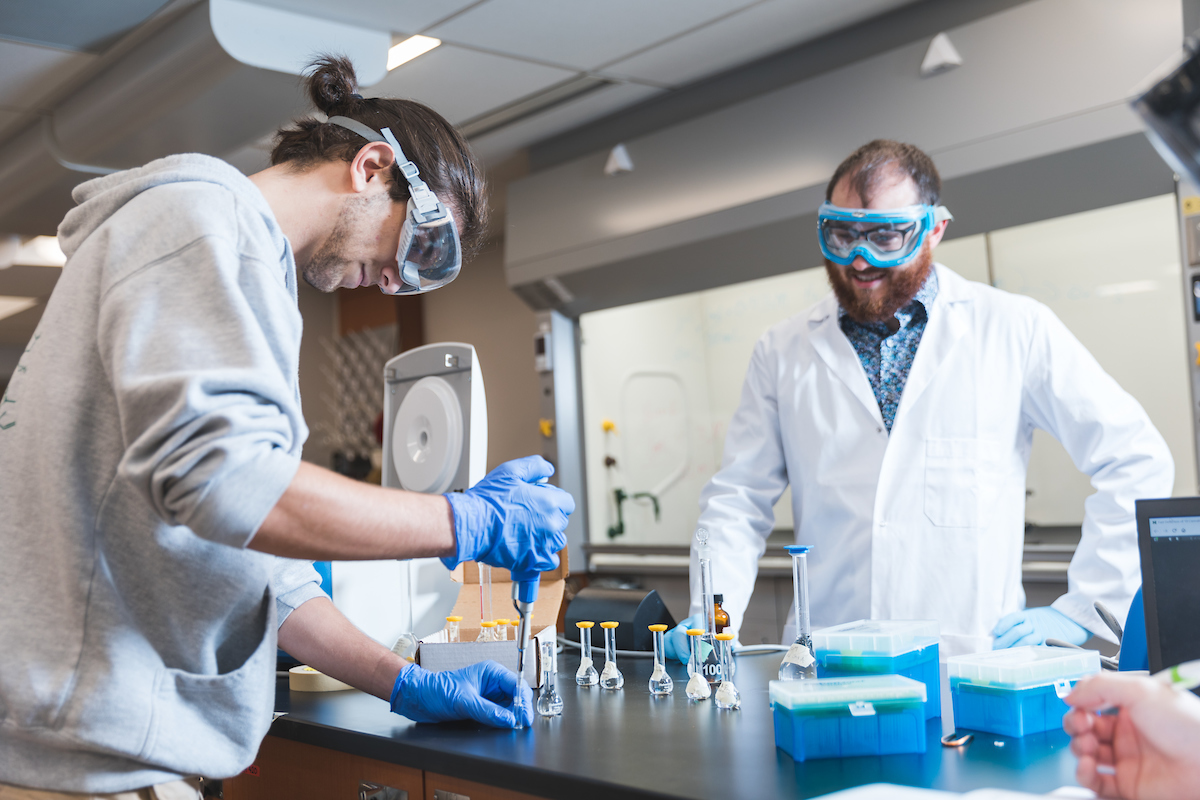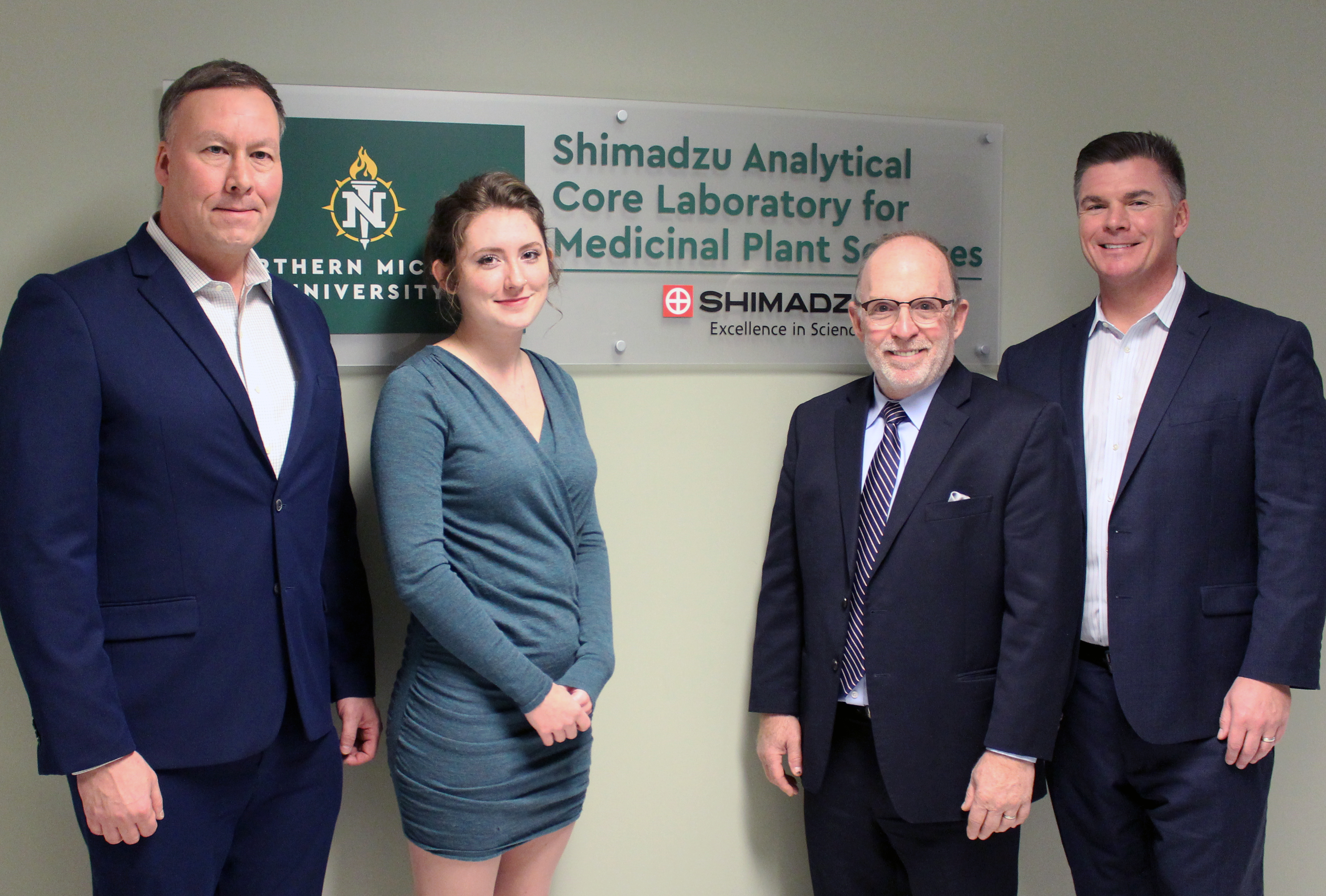Fueled by the rapid growth of its first-in-the-nation medicinal plant chemistry program, Northern Michigan University recently held a dedication for its new Shimadzu Analytical Core Laboratory for Medicinal Plant Sciences. Undergraduate students in the rigorous chemistry program have rare access to cutting-edge instrumentation and technology applicable to numerous career options in and beyond the burgeoning cannabis industry.
The laboratory is located in converted space in NMU's West Science building. It features three types of mass spectrometers: gas chromatography, which detect terpenes and other volatile compounds in plants; liquid chromatography triple quadropole, to quantify targets such as CBD with high accuracy; and inductively coupled plasma, used in trace metal analysis to identify toxins including lead, mercury and arsenic. All contribute to product quality, integrity and safety.
NMU entered into an agreement with the Shimadzu Partnership for Academics, Research and Quality of Life (SPARQ) Program. The collaboration included the in-kind donation of laboratory equipment valued at nearly $851,000, along with a framework for research collaborations and internships.
“The SPARQ program is the type of public-private partnership that higher education institutions such as Northern desire because they help us meet our goal to be a leader in preparing the most qualified workforce and citizenry,” said NMU President Fritz Erickson. “Having access to the same top-caliber equipment they will work on in the industry gives our students a real advantage heading into their careers. We thank Shimadzu for recognizing Northern's innovative culture, our boldness in launching the medicinal plant chemistry program and the high quality of our faculty and students.”
Scott Kuzdzal, vice president of marketing for Shimadzu Scientific Instruments, said NMU is unique in offering an undergraduate program focused on medicinal plants and their potential use for both human and environmental health. He said the education and research taking place on campus will help to overturn the misinformation, stigma and politicization that have plagued hemp and cannabis over the years.
“Hemp can actually be planted as a remediation tool for heavy metals spilled out into the environment,” he said. “Hemp can soak these up from the soil and they can be destroyed in a controlled way. We need to learn more about other remediation capabilities, such as driving aphids away from crops. These are all great areas to do research on.”
Kuzdzal said Shimadzu mostly does business in the quality control space, analyzing potency and contaminants to make sure medicines are safe for consumers to use.
“What we're seeing now is a shift with hemp to food, fuel and fiber. All other industrial applications of hemp are exciting and create a new opportunity for students to get involved and lead the way. NMU, with this medicinal plant program, will have the ability to extend into more industrial applications.”
His colleague Phil Martin, a mass spectrometer sales specialist, said it is difficult to obtain federal funding for instrumentation. “But it's easier to get funding for research projects if the instrumentation is already in place. The investments NMU has made in technology will make it easier to get funded for research partnerships.”
NMU students in the medicinal plant chemistry program now have access to the same level and quality of analytical instrumentation that they will encounter after graduation in commercial, academic and medical research labs.
“This lab is a place where we're developing our skills in analytical lab practices so we can step out into the workforce or graduate program as pioneers in a new field and change the way that the world sees the potential of medicinal plants," said Josie Mollohan, chemistry major. "I truly believe that the future of medicine lies silently in the unique compounds made by plants that have either been overlooked or not yet discovered. I want to thank Shimadzu for countless hours spent crafting a space conducive to our learning here and development of skills we will carry with us far into the world.”
The day before the dedication, representatives of Shimadzu, Green Peak Innovations and Orion GMP Solutions participated in panel on career options, innovations and trends related to Michigan's evolving cannabis industry.
For more on NMU's medicinal plant chemistry program, click here.



